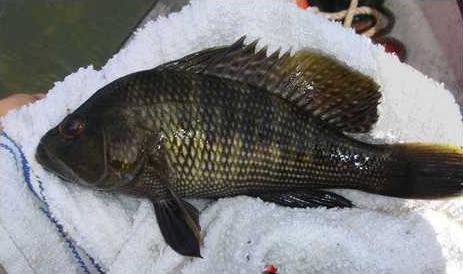The National Oceanic and Atmospheric Administration recently alerted commercial fishermen that commercial harvest of black sea bass using fish pots or cages is allowed in the South Atlantic.
The announcement said commercial fishermen who have valid Unlimited South Atlantic Snapper-Grouper permits with black sea bass endorsements may harvest the sea bass using fish pots. The annual November-through-April prohibition for harvesting black sea bass with pot gear concludes on that date, according to the report.
Doug Haymans, policy coordinator with the Georgia Department of Natural Resources, said the seasonal prohibition was put in place after a fishery assessment showed that black sea bass were being overharvested in the South Atlantic.
He said November to April also is the time of year when right whales are calving.
“It’s a seasonal usage restriction because right whales come through here during that time of year,” Haymans said. “This is their calving ground, and vertical fishing lines are an entanglement risks for them. ... Also, in 2006, an assessment was done that said (black sea bass) fisheries were overharvested, so we put a management plan in place. Last year, another assessment showed this fishery has recovered.”
According to the National Oceanic and Atmospheric Administration, a fish pot is a wire or metal cage, usually about a 2-foot by 2-foot square or 15-inch by 36-inch rectangle.
It has a heavy iron bar frame or other heavy object attached to the bottom of the cage that serves as a weight to take the cage into the ocean depths.
Fish are drawn to the cage to get the bait inside the cage. Once inside, the fish cannot get back out. The cage is attached to a long, nylon line, which is attached at the other end to a small buoy that marks the location of the fish pot.
Haymans said there are only 32 commercial fishermen in this region who are licensed by the National Marine Fisheries Service to harvest black sea bass. He added that all the fishermen are from North Carolina — none are from Georgia.
Because most black sea bass are found more than 3 miles offshore, Haymans said, Georgia is not directly responsible for managing permits.
He added, however, that the Georgia DNR works with other states as well as federal agencies to help manage fish populations.
Haymans said the DNR does regulate red drum and spotted sea trout, which can be caught inside Georgia waters, both recreationally and commercially.
Even though the seasonal ban on commercial harvesting with fish pots is ending, Haymans said commercial fisherman still will have to follow some restrictions.
He explained that the 32 fishermen who currently have permits are not allowed to have more than 35 fish pots on their boats. He then added that most fishermen don’t have boats large enough to carry that many fish pots.
Fishermen are not allowed to leave their fish pots overnight, Haymans said. All fish pots must be returned to shore at the end of each trip. They’re also limited to a total 1,000-pound gutted weight per commercial trip, he said.
Haymans added that the size limit of black sea bass for recreational fishermen is 13 inches long. For commercial fishermen, it’s 11 inches.
Haymans said he didn’t know if the availability of catching black sea bass via fish pots would increase the availability of the fish at coastal seafood markets or if the price per pound would decrease. Charlie Phillips, owner of Phillips Seafood Inc. in Townsend, said yes to both questions.
“I’ve been getting a handful of (black sea bass) anyway,” said Phillips, who emphasized that most of the sea bass he gets comes from North or South Carolina. “I get some from my snapper boats that are caught hook and line. I expect it’ll pick up some after the season opens, and that’ll be a good thing. It gives the public access to a resource.”
He said he expects that an increase in the number of fish available to fish markets probably will cause the price to drop, but he couldn’t speculate exact pricing.
Phillips, whose business has been in operation since 1972, is a member of the South Atlantic Fishery Management Council. Haymans also is a member of that council.
Black sea bass harvesting is back, but still regulated


Sign up for our e-newsletters